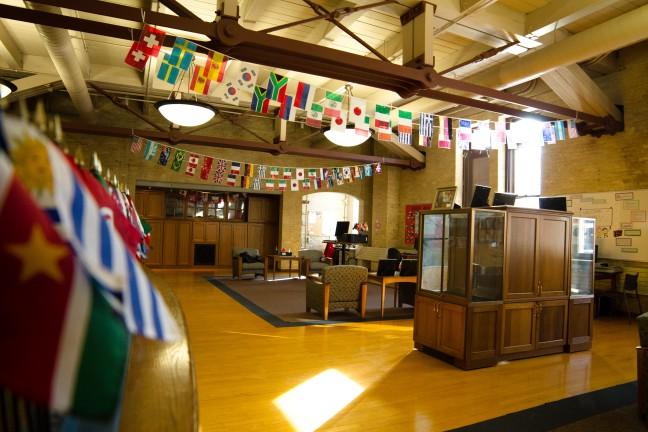The U.S. Department of Education awarded eight University of Wisconsin doctoral students a total of $223,397 in Fulbright fellowships.
The federal department awarded a total of $3 million to recipients across the country to conduct research through the Fulbright-Hays Doctoral Dissertation Research Abroad.
Out of the 42 institutions awarded, UW’s recipients received the greatest amount of grant money, according to a UW statement.
Marguerite Hecksher is one of the eight UW doctoral students awarded the fellowship. Heckscher, a doctoral student in the History of African Art Department, received $30,091 for 10 months of research.
Hecksher spent her undergraduate days studying art history at Columbia University in New York. While trying to fill her course requirements, she took an African art history course and fell in love.
With her background in theater and performance, Hecksher said she immediately recognized the connection between the visual and the performance arts in traditional African art.
“Objects we often think of as artwork from Tanzania’s culture were actually used in a medicinal sense,” Hecksher said.
Hecksher said she made the decision to attend UW to pursue her Ph.D. in African art history for several reasons.
In addition to UW’s spectacular African American history program and the African art installment at the Chazen Museum, Heckscher said UW was especially appealing to her because she wanted to study under art history professor Henry Drewal, whose work she studied as an undergrad.
Another one of UW’s Fulbright recipients is Teresa Speciale. Speciale is a doctoral student of comparative and international education under the Educational Policy Studies branch of UW.
Before pursuing her Ph.D. at UW, Speciale received a Bachelor’s of Arts in linguistics and French language and literature from the University of Boston and completed her master’s in international education at The George Washington University.
Speciale was awarded $46,236 to support her year-long research project, “A View from the Middle — Language Education and the ‘Middle Class’ in Dakar, Senegal,” which focuses on the intersection of education, language and social class in Senegal.
Speciale said she went to Senegal during a summer study abroad program in 2007 and returned to Senegal after graduation to teach English for two years.
Speciale’s research focuses on expanding the work she completed for her master’s thesis and to explore the concept of the African middle class.
“Even in the United States the idea of the middle class is highly contested,” Speciale said. “It’s interesting to bring this Western concept and apply it in an African context.”
If she had not received the Fulbright grant, Speciale said she would have looked for another teaching job in Senegal with the goal of doing her research on the side, which, she noted, would have taken her much longer.
Hecksher also noted UW’s abundance of resources was pivotal to her receiving the Fulbright grant for her research. Her research would not have been possible without the other opportunities UW provides, she said.
“Everyone should apply,” Speciale said. “I was actually rejected once, but Fulbright gives you really great feedback. So my advice to anyone thinking about it is to just keep applying.”














